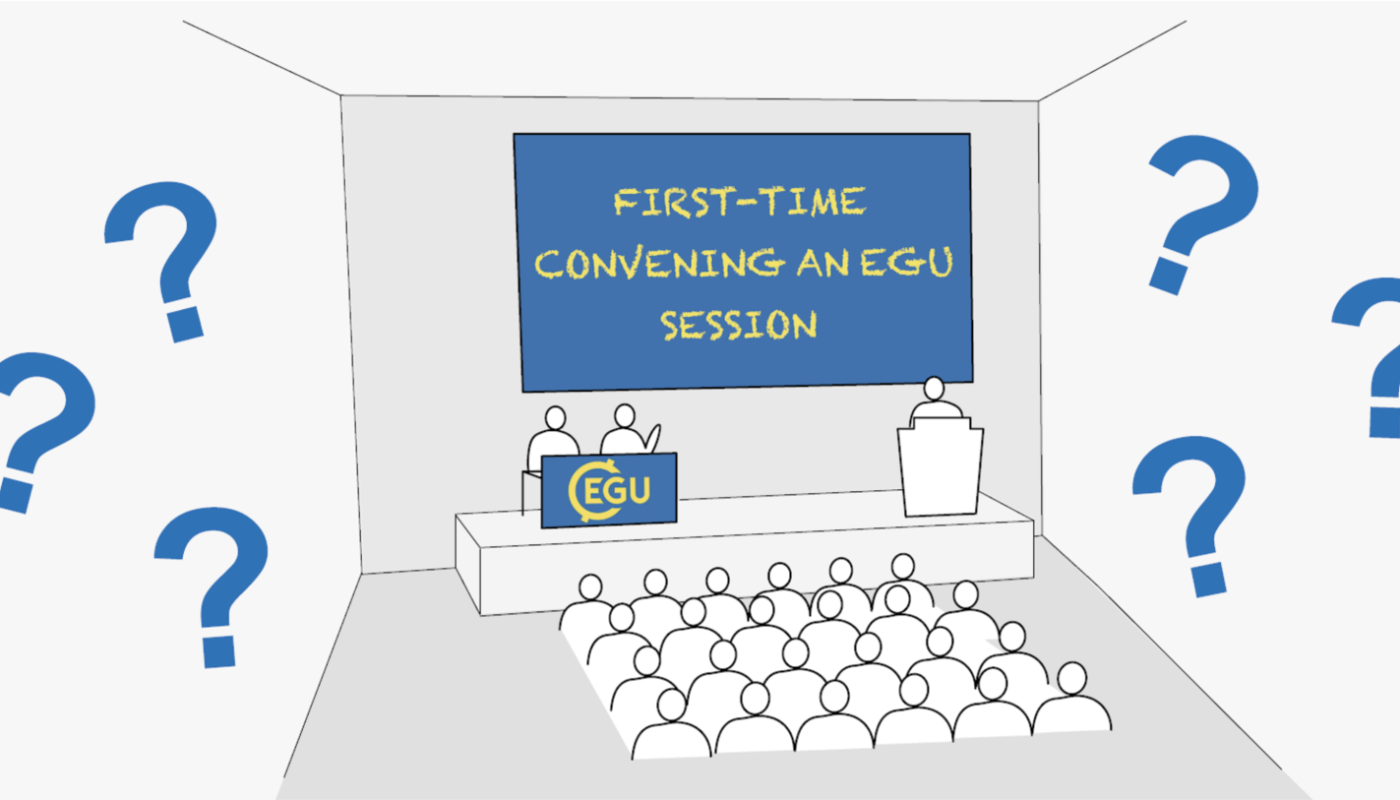EGU Division meetings will be organised as Zoom meetings. EGU will continue its tradition of offering the opportunity for participants to apply to organize splinter meetings: public meetings on non-commercial matters. These will be free of charge and listed in the programme with a link to the video chat. 12 hours ago Each year, EGU honours individuals for their significant contributions to the Earth, planetary, and space sciences by bestowing more than 50 medals and awards during its spring General Assembly. EGU members are asked to submit their nominations for all EGU 2022 honours, including the new Marie Tharp Medal, by 15 June 2021. The Marie Tharp Medal, which recognises the scientific. The European Geosciences Union (EGU) blogs host the official blog of the EGU, GeoLog, as well as a network of blogs in the Earth, planetary and space sciences aimed at fostering a diverse community of geoscientist bloggers. The EGU online information desk is available during the main vEGU21: Gather Online session hours. General questions and information will be given to attendees, presenters, conveners, and chairpersons through text-based chats. Of course, Copernicus Meetings' email support is also ensured. The opening hours of the EGU online information desk are. The EGU General Assembly 2021 will bring together geoscientists from all over the world to one meeting covering all disciplines of the Earth, planetary, and space sciences. The EGU aims to provide a forum where scientists, especially early career researchers, can present their work and discuss their ideas with experts in all fields of geoscience.

Abstract content and abstract submission
Abstracts of the work that is to be presented at the General Assembly should be short (100–500 words), clear, concise, and written in English with correct spelling and good sentence structure. Every abstract should present unique research. Submission of duplicate abstracts is considered unethical, irrespective of presentation format or programme group that an abstract is submitted to. To protect the integrity of authorship, only persons who have significantly contributed to the research should be listed as authors on abstracts. Thereby, no fictitious names are allowed to be listed as authors or co-authors. The corresponding author attests to the fact that any others named as authors have seen the final version of the abstract and have agreed to its submission for presentation. The author who submits an abstract accepts the responsibility of having included as co-authors all persons that are appropriate and none that are inappropriate.
Authors who are not themselves professional scientists, but have contributed significantly to either the research design, delivery, or analysis (e.g. citizen scientists, indigenous communities) can also be listed as co-authors. Please note that in the case of any citizen science (or other such) project where there are a large number of potential co-authors, the name of a specific group or collective is permitted, provided that they themselves aided significantly in the research that is presented.
EGU abstracts remain online and are searchable also for people not participating in the General Assembly. All abstracts receive a DOI (digital object identifier). Abstracts (except withdrawn ones) are also indexed in the SAO/NASA Astrophysics Data System (ADS). They are not indexed in other bibliographic databases like Scopus. ORCID numbers will be linked to authors that have their ORCID included in the personal data section of their Copernicus account.
Submitting abstracts and display materials to vEGU21 does not impact future publication. Journals usually encourage authors to discuss their work at conferences prior to submitting a manuscript, and most allow posting on a not-for-profit preprint server such as EGUsphere prior to submission. Examples of these policies can be found at all EGU and AGU journals, Nature, and Science.


Further information on abstract submission can be found on how to submit an abstract.
One-abstract rule
Authors are allowed as first author to submit either one regular abstract plus one abstract solicited by a convener, or two solicited abstracts. A second regular abstract can be submitted to the Education and Outreach Sessions (EOS) programme group (the maximum number of abstracts, including solicited abstracts, remains two). Possible submissions for first authors are the following:
Euro Equals
- 1 regular + 1 solicited abstract;
- or 2 solicited abstracts;
- or 1 regular or solicited abstract + 1 EOS abstract (regular or solicited).
Since the system limits abstract submissions to one you will need to provide a transaction number (TAN) when submitting your additional solicited abstract. This TAN has to be provided by the convener. Participants can be co-author on additional abstracts in which they are not first author.
Egu Membership
EGU membership required
Egu
Only EGU members are able to submit an abstract as first author. You can become member or renew your membership at the EGU webpage.
Abstract processing charges (APCs)
Egu Membership Number
Please note that submission of an abstract incurs an abstract processing charge (APC) of €40. Late contributions (uploaded by conveners after the abstract deadline) have an increased APC of €80 and require approval by the programme committee.